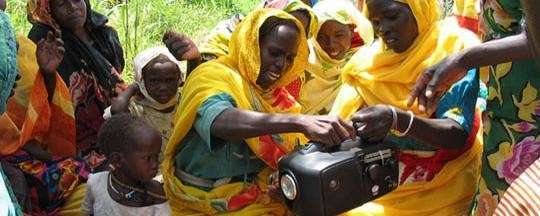Traditional elders meeting in Aweil East to ensure a peaceful migration season were joined by women and youth representatives calling for coexistence among the Dinka Malual and Misseriya Arab tribes.
The three-day peace conference in eastern Northern Bahr al Ghazal State reviewed implementation of resolutions of last year’s conference and looked ahead to the new migration season.
Leaders of the tribes meet annually in order to prepare for the entry of Misseriya herders and their cattle into Dinka territory. Discussions are normally led by male elders, and sometimes blood compensation is considered owing to crimes committed during the previous season.
Acting Governor Lino Adup Achien opened the conference on Monday, describing the conference as an opportunity for the ‘native administrations’ of the two states to address common concerns, while also warning them to avoid issues under the purview of the state or national governments.
Representative of the Misseriya women, Gisma Ibrahim Hamid, told the conference she was particularly happy to see youth from both sides promising to work together in order to support peace.
“Today we are happy for the presence of our youth in the conference. We women we are the ones that give birth to children. We are the ones whose husbands died in the war,” she said.
“We have been crying all these times because of war. These children we give to die if there is a war. We women we are the ones who used to support war by making ululation when men are about to stage war, but from today we shall not do that anymore,” added Gisma.
“Enough is enough – we don’t do it again because there are many widows and many children born by widows who don’t know their fathers. We have been doing many peace conferences without the presence of our youth but today I am pleased they are here to witness it,” she said.
Mahmoud Yagoub Adam, representing youth from the Missiriya side, and Garang Areech, representing youth from Dinka Malual, both promised to support the peace committees.
They also called on the Northern Bahr al Ghazal state ministry of youth, culture and sports to organize football matches that would bring them together.
The three-day conference was attended by more than 200 chiefs and officials from both sides. It closed Wednesday with agreement on 29 resolutions. Among the points are stipulations as to four migration routes to be used by herders moving their cattle into South Sudan.
Meanwhile, traders for their part have cautioned that they should not be excluded from the conference. Deng Mayen Deng, a member at the chamber of commerce, said that trade should be on the agenda of the talks, which focused mostly on grazing and cattle migration.
“It is important for us to participate in the peace meetings because these Misseriya traders are the ones that come with goods to South Sudan, and it is good that trade between us and them should be on the agenda in these talks,” he said.
Gok Machar conference
The conference in Aweil East followed on the heels of another one on the other side of the state, at Gok Machar in Aweil North County. Organized in a similar way, the earlier event was held between Dinka Malual and another neighbouring tribe, the Riziegat Arabs of East Darfur.
Like the Misseriya, the Rizeigat graze their cattle annually in Northern Bahr al Ghazal owing to dry conditions in their own territory.
The three-day peace meeting at Gok Machar resulted in an 18-point agreement on such matters as timings of nomad movements, blood compensation, and carrying of weapons. These matters are discussed annually.
Mahmud Madubo, a leader of the Riziegat, said his delegation came with the backing of the entire tribe. “We cannot not live without South Sudan and likewise the Dinka Malual can’t live without us. Let’s recall what our fathers did and how they lived. There is no old without the new and there is no new without the old – and if there is a new it means there is an old,” he said.
Reporting by Nhomlaau FM and Radio Tamazuj
File photo: Misseriya women listening to Radio Dabanga




